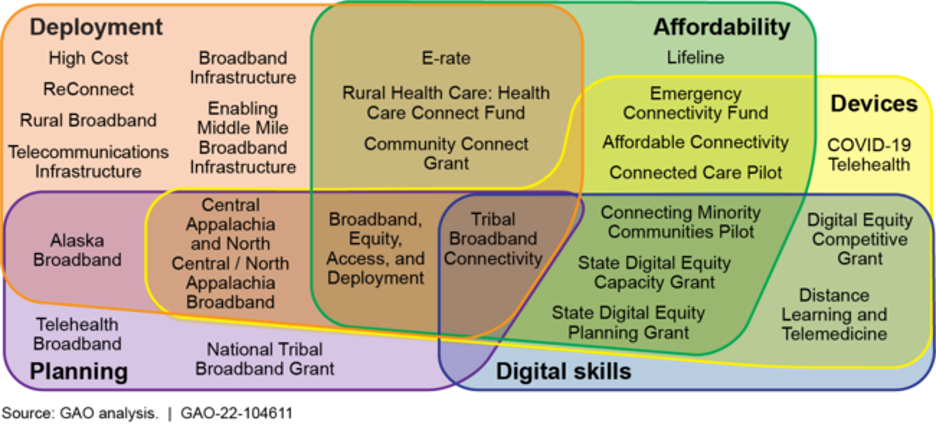Trump Tariffs And The Fintech IPO Freeze: The Affirm Holdings Case Study

Table of Contents
The Impact of Trump Tariffs on Global Economic Sentiment
The Trump administration's imposition of tariffs, ostensibly aimed at protecting American industries, triggered a wave of global economic uncertainty. These tariffs, targeting goods from various countries, disrupted established supply chains, leading to increased costs for businesses and consumers alike.
- Disrupted Supply Chains: The tariffs created bottlenecks and delays in global trade, impacting the availability and cost of raw materials and finished goods. This unpredictability made accurate financial forecasting incredibly difficult.
- Eroded Business Confidence: Businesses, facing increased costs and uncertainty, became hesitant to invest in expansion or new projects. The overall climate of uncertainty dampened business confidence, leading to reduced investment and slower economic growth.
- Increased Market Volatility: The escalating trade war created significant market volatility. Investors, facing unpredictable economic conditions, adopted a risk-averse approach, preferring established companies with proven track records over high-growth, but potentially riskier, ventures.
- Impact on Investment Decisions: This heightened risk aversion directly impacted investment decisions, particularly in high-growth sectors like Fintech, which are often characterized by their innovative, but sometimes untested, business models. Investors favored safer, more established investments over potentially volatile new entrants.
The Fintech IPO Market Before and After the Tariffs
The Fintech IPO market, once a hotbed of activity, experienced a noticeable slowdown following the implementation of Trump tariffs. The period before the tariffs saw a surge in IPOs, with numerous Fintech companies successfully entering the public markets. However, the post-tariff environment presented a dramatically different picture.
- Decreased IPO Activity: The number of Fintech IPOs decreased significantly after the tariffs were imposed. Investors became much more selective, focusing on companies with established revenue streams and less exposure to global trade uncertainties.
- Changes in Market Capitalization: The market capitalization of many Fintech companies declined during this period, reflecting the shift in investor sentiment and the reduced willingness to pay high valuations for companies perceived as being high-risk.
- Increased Investor Scrutiny: Investors conducted far more rigorous due diligence, focusing heavily on companies' resilience to economic shocks and their exposure to global trade disruptions. Risk assessment became paramount.
- Shift in Investor Preferences: The preference shifted dramatically towards established, more mature companies with demonstrably stable revenue streams and lower risk profiles. High-growth, innovative Fintech companies found themselves struggling to attract investors at favorable valuations.
Affirm Holdings' IPO: A Case Study of Delayed Entry
Affirm Holdings, a prominent Buy Now Pay Later (BNPL) company, provides a stark example of the challenges faced by Fintech companies attempting to go public during this period of economic uncertainty.
- Affirm's Business Model: Affirm offers a point-of-sale financing option, allowing consumers to spread payments for purchases over time. This innovative business model, while rapidly gaining traction, was still relatively new and untested at the time.
- Delayed IPO: Affirm's IPO attempt coincided with the escalating trade war, resulting in a delay as the company navigated the challenging market conditions. The initial enthusiasm for the IPO cooled significantly in the face of economic uncertainty.
- Valuation Challenges: Securing a favorable valuation became exceedingly difficult for Affirm. Investors were less willing to pay premium valuations for a relatively new company operating in a sector perceived as potentially vulnerable to economic downturns.
- Investor Hesitancy: Investor appetite for Affirm was significantly reduced by the broader macroeconomic climate. The heightened risk aversion led to a cautious approach, resulting in a lower-than-anticipated valuation for the IPO.
- Post-IPO Performance: Affirm's subsequent performance post-IPO needs to be viewed in the context of the challenging market conditions it faced upon entering the public markets. While it ultimately succeeded in its IPO, its initial performance reflects the difficulties faced by many companies during this period.
Specific Factors Affecting Affirm's IPO
Several factors directly impacted Affirm's IPO, highlighting the complex interplay between macroeconomic indicators and investor sentiment.
- Macroeconomic Indicators: Key macroeconomic indicators, such as interest rate changes and forecasts for economic growth, significantly influenced investor decisions. Negative projections fueled increased investor risk aversion.
- Perceived Risks in the BNPL Sector: The relatively nascent nature of the BNPL sector, coupled with concerns regarding potential loan defaults during economic downturns, increased the perceived risk associated with Affirm.
- Competitive Landscape: The competitive landscape within the BNPL sector also played a role. The presence of established competitors added to the uncertainty surrounding Affirm's long-term growth potential.
Conclusion
The Trump tariffs created a period of significant economic uncertainty that profoundly impacted the Fintech IPO market. Affirm Holdings' delayed and ultimately challenged IPO serves as a compelling case study illustrating how investor sentiment, risk aversion, and broader macroeconomic conditions can heavily influence the success of even promising Fintech companies. The interplay between global trade policies and the financial technology sector showcases the need for a nuanced understanding of the wider economic context when entering the public markets. Understanding the intricate relationship between geopolitical events and the Fintech IPO market is crucial for investors and entrepreneurs alike. Further research into the impact of global trade policies on financial technology investment is essential to effectively navigate future market uncertainties. Learn more about the complexities of Trump tariffs and the fintech IPO freeze by exploring additional resources and case studies.

Featured Posts
-
 Sanremo 2026 Requisiti Di Partecipazione Per Le Emittenti Tv
May 14, 2025
Sanremo 2026 Requisiti Di Partecipazione Per Le Emittenti Tv
May 14, 2025 -
 Dean Huijsen E50 Miljoen Transfer Naar Real Madrid
May 14, 2025
Dean Huijsen E50 Miljoen Transfer Naar Real Madrid
May 14, 2025 -
 Uruguay Despide A Jose Mujica Un Analisis De Su Impacto Politico
May 14, 2025
Uruguay Despide A Jose Mujica Un Analisis De Su Impacto Politico
May 14, 2025 -
 Bell Campaign Targets Federal Wholesale Fibre Policy Changes
May 14, 2025
Bell Campaign Targets Federal Wholesale Fibre Policy Changes
May 14, 2025 -
 Kupovina Novakovikh Patika Shta Treba Znati Pre Nego Shto Potroshite 1 500 Evra
May 14, 2025
Kupovina Novakovikh Patika Shta Treba Znati Pre Nego Shto Potroshite 1 500 Evra
May 14, 2025
